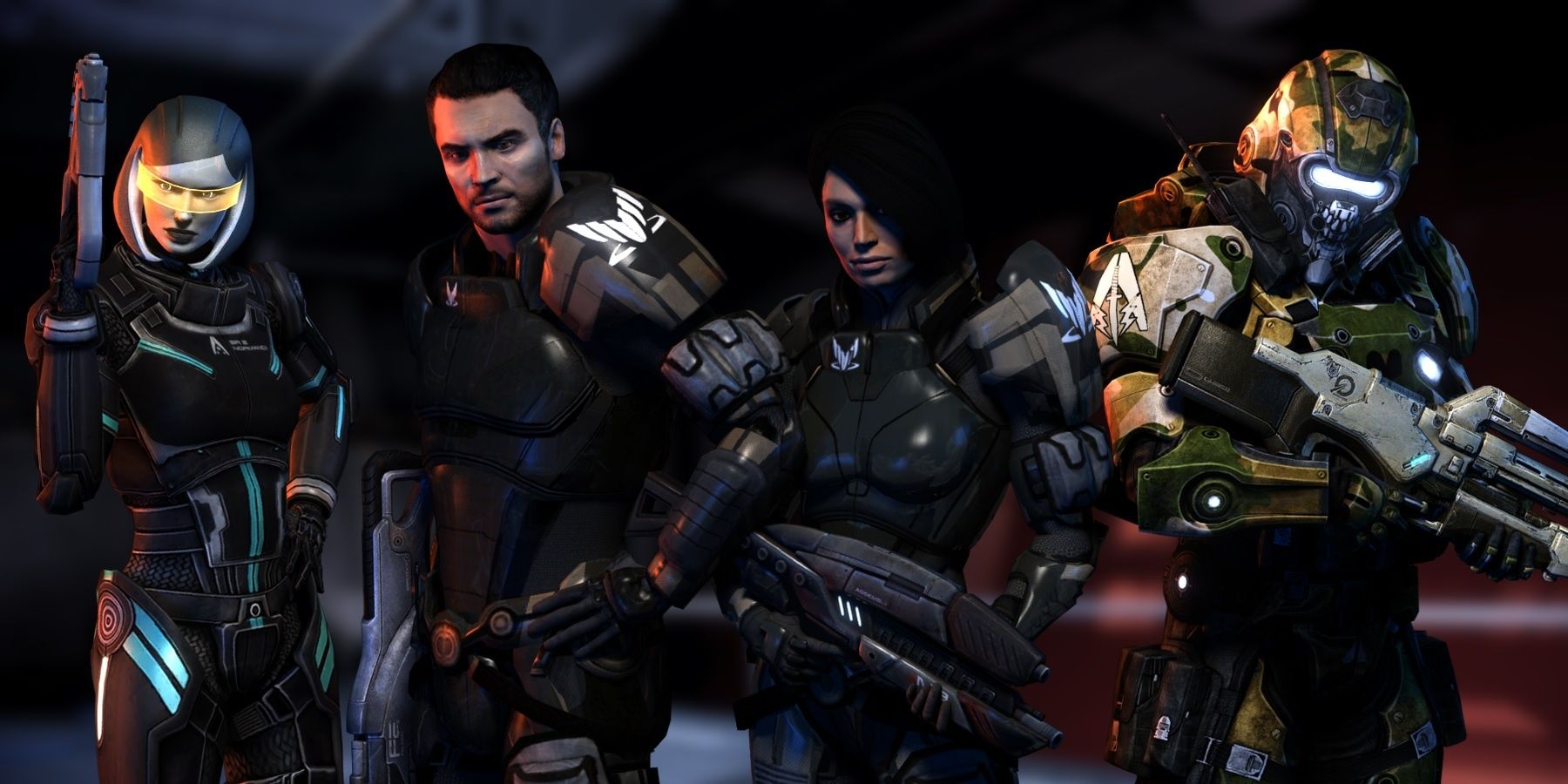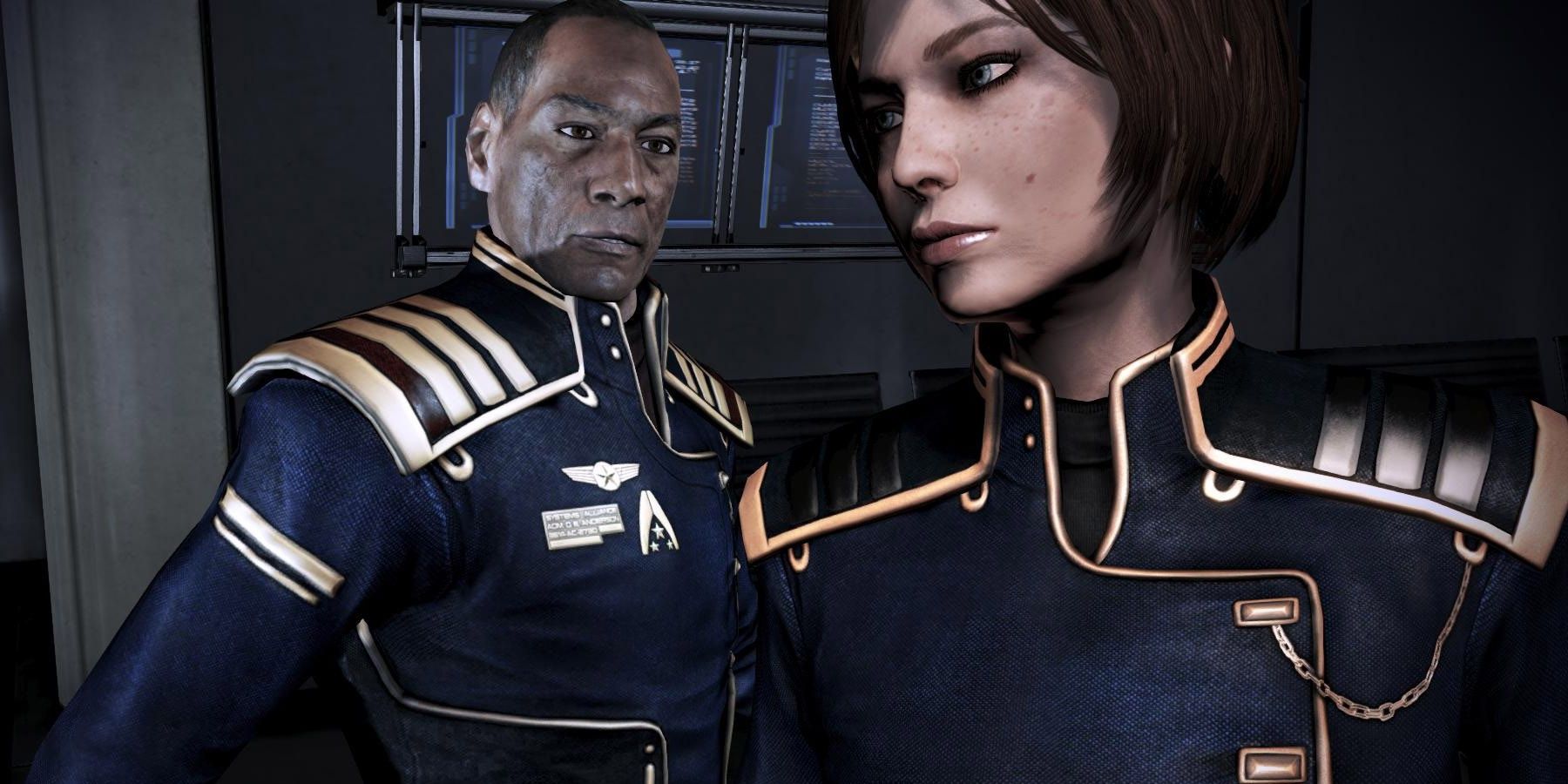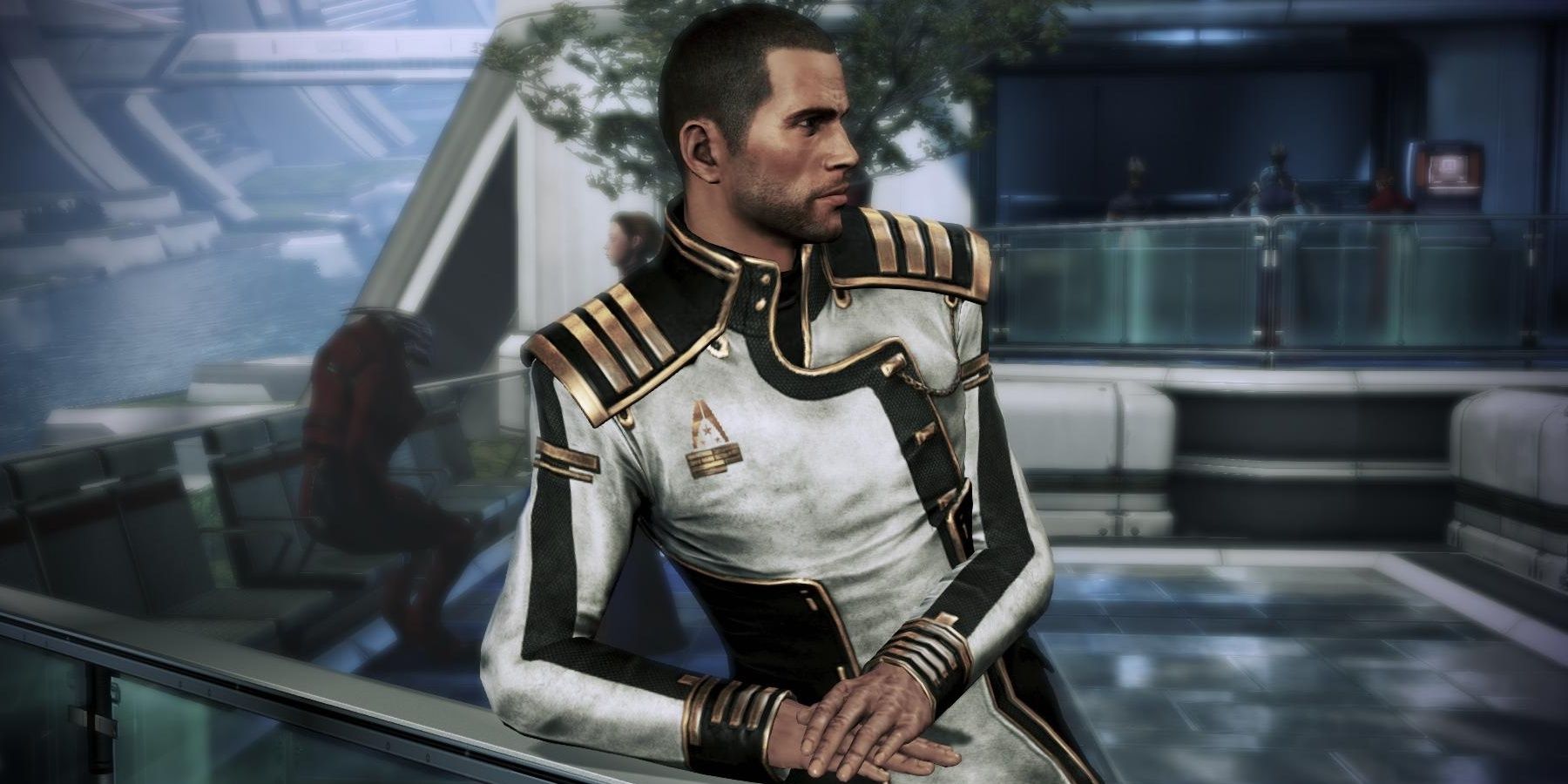In the Mass Effect universe, humanity has outgrown the confines of planet Earth, and the human race is ready to expand across the stars and plant the Systems Alliance's flag on alien worlds. The neighbors have mixed feelings about that.
From the start in the Mass Effect games, it is clear that humanity is a newcomer to the galactic stage; indeed, most of these aliens had spaceships and space empires while Shakespeare was writing his plays. In fact, the Asari had a multi-planet civilization while Julius Caesar was alive and well in ancient Rome. But the united human race is ready to make up for lost time, and the galaxy would never be the same, especially with the legendary Commander Shepard on the scene.
Meet The New Humanity
Unlike the other fictional races in Mass Effect, the human race is an estimation of what the real world's humanity might be like in about 160 years. Mass Effect's human race has entered a new golden age, and societal ills such as pollution, genocide, overpopulation, war and diseases are either eliminated or practically non-existent. Of course, there is still inequality on Earth; less-developed parts of the world have lower levels of technology and must deal with poverty, pollution and crime. By contrast, the more advanced parts of Earth are more typical of other science fiction franchises, complete with super-powerful computers and VI services, spaceships and spaceports, massive silvery buildings, ultra-fast communication and more. But it's not just Earth; the entire Solar System is populated, especially Mars and its capital of Lowell City. Arcturus Station is near the edge of the Solar System, home of the Systems Alliance's parliament. Humanity has truly united at last, and only a cohesive human race could have spread this far.
These humans are largely similar to their 20th and early 21st century forebears, but there are some differences. By now, ethnic groups have blurred quite thoroughly, with most humans having rather complex ancestry from all over the globe. Very few ethnically homogenous humans are around, such as Germans or Saudis or Chinese; humanity is genetically global. Interestingly, natural recessive traits, such as blond hair and blue eyes, are practically gone. Also, humanity has realized its potential for biotics, or naturally affecting mass effect fields and dark matter around them. Many companies, such as the defunct Conatix, invested a lot of money into researching biotics.
Now humanity is on the global stage and is expanding fast, and compared to other races, humanity is rather generalist. For example, the Salarians are the dedicated scientists and researchers, while the Turian people are the military powerhouse of the galaxy and the Quarian people are known for their massive Migrant Fleet and their shipbuilding skills. Humanity is not so clearly pigeonholed; these people have biotic talents like the Asari, a powerful conventional army like the Turians and bold scientific endeavors like the Salarians. However, humanity also has plenty of thuggish mercenaries and raiders, too, just like the Batarian people or the Vorcha.
Humanity In The Story
Like most other advanced species, humanity expanded beyond its home system by discovering a local mass relay. However, humanity did this far later than the neighboring species. While humanity was jousting with knights and exploring the seas on wooden ships, the Asari and Turians expanded their empires. When humanity was fighting its 20th-century World Wars, the galactic balance of politics was already well established. In the 2150s, humanity was expanding fast, but the Systems Alliance wrongly thought itself alone in the galaxy. For this reason, colonization efforts in the 2150s and 2160s ran afoul of the locals, such as the Batarians and the Turians. The First Contact War resulted from both the Systems Alliance and the Turian Hierarchy panicking at the sudden sight of each other. The war was quickly halted before things got worse, but humanity's colonization efforts ended up pushing the Batarian people out of Council space, and the Batarians have nursed a serious grudge against humankind ever since. Everything from snide insults and propaganda to slave raids on human colonies has been inflicted on the Systems Alliance by the bitter Batarians.
The galaxy's races are fascinated and somewhat concerned by humanity's rapid, even reckless, expansion, prompting all kinds of responses ranging from eager offers of cooperation to downright xenophobia. The Batarians have the most negative relationship with the Alliance, while the Turian people are wary of them but are slowly and surely building bridges with them, letting old wounds heal. The Asari see the humans as reckless but mostly harmless, while the Salarians see a like-minded ally in the Alliance, and vice versa. Volus, Hanar and Elcor are largely neutral about humanity.
Commander Shepard has risen to become humanity's ambassador in many ways, from his/her open-minded attitude and Navy experience to the fact that Shepard became the first human Spectre, an elite agent. But the Illusive Man is also an ambassador of humanity, a more sinister one who is more interested in domination and defiance toward the other races. The Cerberus organization claims to be humanity's shield, but over time, it became the true dark side of the human race and its dreams of expansion.



